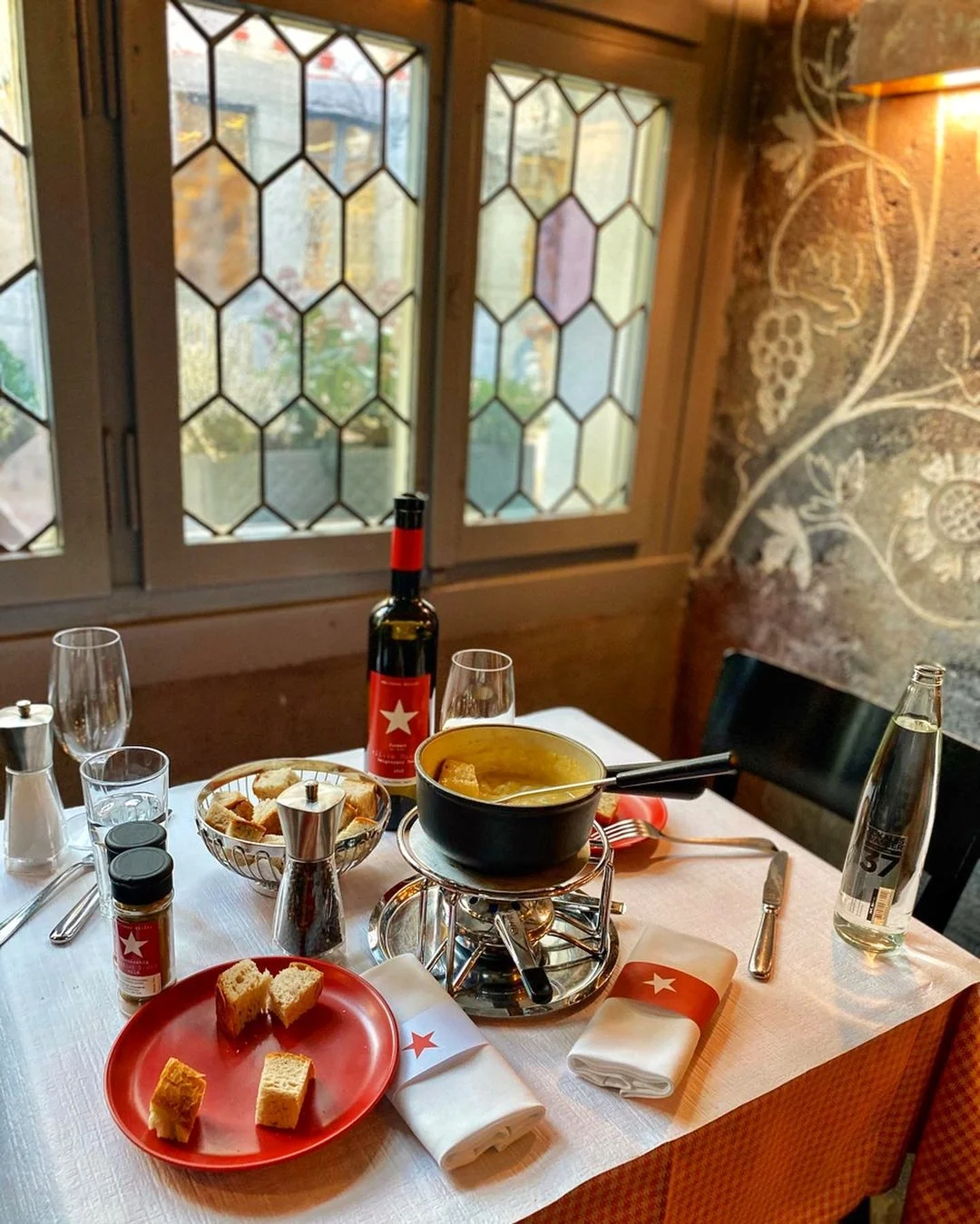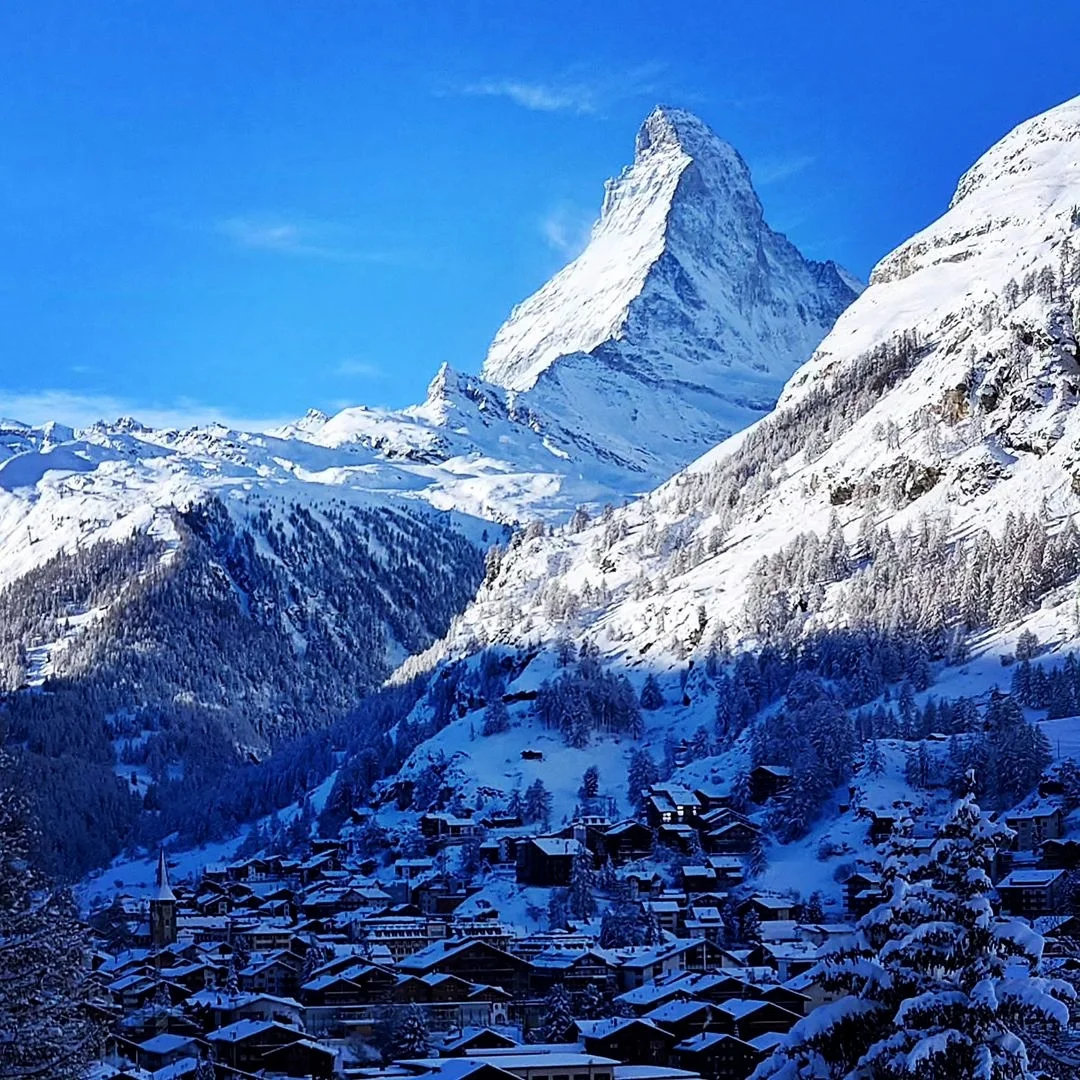
Switzerland In January – Weather, Where To Go & Things To Do
Imagine a land where snow-capped mountains meet picturesque villages, creating a winter wonderland that feels straight out of a fairy tale𑁋welcome to Switzerland in January.
As the New Year unfolds, Switzerland transforms into a haven for winter sports enthusiasts, cultural explorers, and those seeking serene, snowy landscapes.
So, January is a great time to visit Switzerland, especially for winter sports enthusiasts.
Today, I’m going to explain the most important things you need to know if you want to visit Switzerland in January.
Let’s delve into what makes this time of year in Switzerland truly special.
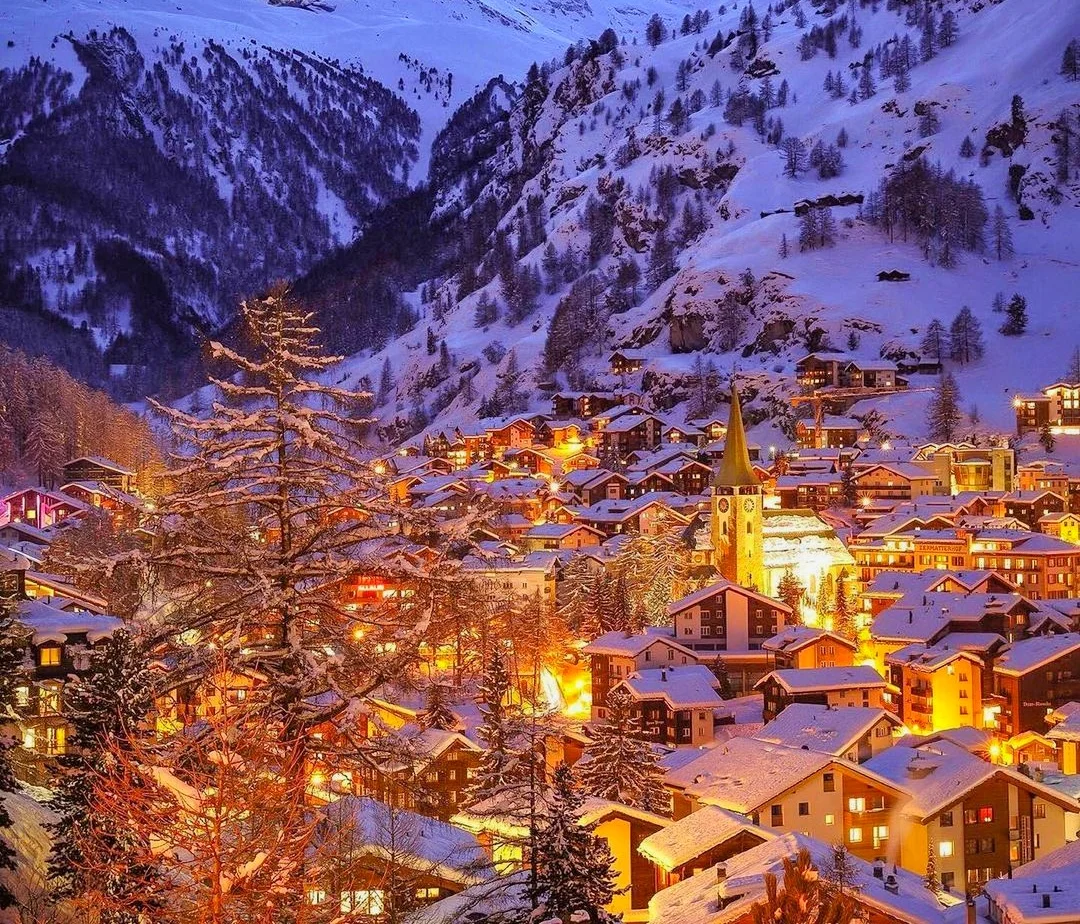
Table of Contents
Weather In Switzerland In January
The weather in January is usually quite stable, I would say. There may be rainfall, but in general, it’s a rather dry and cold month.
So, if you are up in the Swiss Alps, you will definitely benefit from the dry weather. On the summits, you can actually have a great view over several kilometers.
Also, it’s going to be really cold; usually, the temperature in the Alps ranges from -7℃ (19.4℉) to 3℃ (37.4℉). Sometimes it’s even -30℃ (-22℉) and 7℃ (44.6℉).
It’s also very important to keep in mind during the day the temperatures can be warmer, around -1℃ to 3℃ in the Alps, but at night temperatures will drop easily to -7℃ (19.4℉) to -10℃ (14℉).
Down in the plains, it’s usually warmer. The temperature is normally between -1℃ (30.2℉) to 7℃ (44.6℉). Sometimes it can be colder, around -12℃ (10.4℉), and sometimes it can reach -20℃ (-4℉).
The warmest city in Switzerland in January is typically Lugano. Thanks to its Mediterranean-like climate, temperatures here are milder compared to the rest of Switzerland, often ranging between 2℃ to 7℃ (35℉ to 45℉) during January.
The coldest city in Switzerland in January is typically La Brévine, often dropping below -20℃ (-4℉) and sometimes even lower. It holds the record for Switzerland’s coldest temperature of -41℃ (-41.8℉).

Shorter Days
The days are rather short in January. The sun sets early, around 4:45 pm to 5:15 pm.
Because of that, you need to be aware that daylight hours are limited, and it gets light rather early, around 7:30 am or 8 am, and at 8:30 am it’s already quite bright.
I know it’s a downside that the days are short, but then you’ll have the advantage of easily getting up to see the winter sunrise.
And it’s a really great thing compared to the summer season because the sun rises very early at 5 am.
Best Places To Visit In Switzerland In January
January offers some of the best experiences the country has to offer. Based on my personal experience and knowledge of Switzerland, here are the top places I recommend visiting in January:
St. Moritz
St. Moritz is known for its luxurious resorts and as a playground for the rich and famous people. It is also synonymous with winter elegance.
In January, the town hosts the world-famous Polo World Cup on snow, attracting international guests.
I’ve had the pleasure of exploring St. Moritz in the winter, and it’s an unforgettable experience.
The pristine lake, which is frozen in January, transforms into a playground for ice sports like curling and ice skating.
Zermatt
If you’re looking for world-class skiing and a view that will take your breath away, Zermatt is the place to be.
The town itself, with its charming car-free streets, exudes old-world charm, while the nearby slopes of the Matterhorn provide some of the most iconic ski runs in the world.
During my visit to Zermatt, I was mesmerized not only by the skiing but by the picture-perfect views of the Matterhorn, especially as the sun sets and casts a golden glow on the snow.
The après-ski scene is lively, and there are plenty of cozy restaurants to enjoy Swiss fondue after a long day on the slopes.
Lucerne
Lucerne is a picturesque city that offers the winter beauty of the Swiss Alps.
In January, the city is peaceful, with fewer tourists, making it an ideal time to explore its medieval Old Town, covered in snow.
My experience walking around Lake Lucerne on a crisp winter day remains one of my favorite memories.
The surrounding mountains, like Mount Pilatus and Mount Rigi, are easily accessible.
Also, winter hiking or taking a cable car ride gives you spectacular views of the lake and snowy peaks.
Don’t miss the chance to visit the iconic Chapel Bridge and the Lion Monument, which look stunning against the winter backdrop.
Grindelwald
If you’re looking for adventure, Grindelwald should be at the top of your list.
This charming mountain village is a haven for winter sports, with activities like skiing, snowboarding, and snowshoeing.
I hiked along some of the winter trails and was amazed by the quiet, serene beauty of the snow-covered landscape.
I suggest you pay a visit to the Jungfraujoch⎼the “Top of Europe”. It’s an experience that should be on every traveler’s list in January.
Interlaken
Interlaken is the perfect base for exploring the surrounding mountains and valleys.
I personally love Interlaken for its vibrant winter activities, including paragliding over snowy peaks or taking scenic train rides to nearby mountain resorts.
The picturesque town itself has a cozy feel in January, and it’s not as crowded as the bigger ski resorts, making it perfect for a more relaxed experience.
Geneva
While Geneva is more known for its cosmopolitan vibe and international atmosphere, in January, it transforms into a winter wonderland.
The colder weather adds to the charm, especially around Lake Geneva, where you can enjoy winter walks with views of the snow-capped Alps.
I recommend visiting the Jet d’Eau and strolling along the lakefront to admire the snow-covered scenery.
Lausanne
Lausanne is another stunning Swiss city to visit in January. Known for its beautiful lakeside views, its cobbled streets, and the Olympic Museum, Lausanne has a tranquil charm in winter.
My visit during January gave me the opportunity to wander through the Old Town, visit the stunning Lausanne Cathedral, and take in panoramic views of the lake by the snowy Alps.

Public Holidays And Festivals In Switzerland In January
January in Switzerland is not only a time for winter adventures but also a period filled with unique cultural celebrations and festivals.
While there aren’t many public holidays this month, the festivals more than make up for it.
From light displays to traditional events, here’s what you can experience in Switzerland during January.
New Year’s Day (Neujahrstag)
Date: January 1
New Year’s Day is a public holiday across Switzerland, and it’s the perfect time to see how the Swiss celebrate the start of the year.
Most shops and businesses remain closed, but you’ll find locals and tourists alike flocking to ski resorts or gathering for quiet celebrations in the countryside.
When I celebrated New Year’s Day in Lucerne, the festive vibes and fireworks displays by the lake made it truly memorable.
Light Festivals
LILU Light Festivals (Lucerne)
Date: Mid-January (exact dates vary)
The Lucerne LILU Light Festival is one of my personal favorite January events.
Last year I visited the Lecerne LILU Light Festival. The entire city of Lucerne transforms into a luminous wonderland, with light projections onto the churches, bridges, and public spaces.
The snow is free to explore, though you’ll need to book tickets in advance if you want to attend special performances inside the churches.
Murten Light Festival (Murten)
Date: Late January
The medieval town of Murten comes alive with glowing art installations during this light festival.
It’s a magical experience walking through the narrow cobblestone streets, and festive energy.
I attended this festival last year also and the way the historic towncape was transformed by the lights was unforgettable.
Berchtoldstag (Berchtold’s Day)
Date: January 2
Berchtoldstag is celebrated in some parts of Switzerland, particularly in German-speaking regions like Zurich and Bern.
Berchtoldstag is a public holiday that has its roots in ancient pagan traditions.
Originally associated with feasting and celebrating the harvest, it’s now a day for relaxation and family gatherings.
While I was in Zurich on Berchtoldstag, I enjoyed the quieter city streets and stumbled upon small community events featuring traditional Swiss foods and crafts.
Epiphany (Dreikӧnigstag)
Date: January 6
Epiphany is celebrated in some regions of Switzerland, particularly in catholic areas.
A key tradition of the day involves the Dreikӧnigskuchen, a special cake with a hidden plastic king figurine inside.
Whoever finds the figurine gets crowned “king” for the day!
I joined friends in Geneva for this celebration, and the joy of discovering the “king” made it a memorable cultural experience.
International Hot Air Balloon Festival (Château-d’Oex)
Date: Late January (usually runs for nine days)
The International Hot Air Balloon Festival is also a must-see in January. This iconic festival in Château-d’Oex, located in the Vaud Alps.
It’s a breathtaking event where dozens of colorful hot air balloons from around the world take to the skies against a backdrop of snow-covered mountains.
When I attended, I was amazed by the sight of the vibrant balloons floating gracefully above the alpine landscape.
Even if you’re not taking a ride, the spectacle is worth witnessing.
Christmas Markets
It is also important to know that some Christmas markets are still open in early January.
I know this sounds surprising, but the Christmas season actually lasts until January 6th.
But some markets are open during January including the Montreux Christmas Market, Basel Christmas Market, Lugano Christmas Market, and a few others.

Best Things To Do In Switzerland In January
It’s very important for you to know that most summer attractions remain closed until the end of March or early April, and some may even be closed until the end of June.
In winter, you’ll have a different set of attractions, which is really cool. Here’s a look at the best things to do in January:
Winter Sports & Ski Resorts
As you know, Switzerland is a paradise for winter sports enthusiasts. Whether you’re into skiing, snowboarding, or snowshoeing, there’s something for everyone in Switzerland in January.
Popular ski resorts like Zermatt, St. Moritz, and Davos offer world-class slopes and stunning alpine views.
For those who enjoy cross-country skiing, the Engadin Valley has some of the best trails in Europe.
- Zermatt: Zermatt is known for its iconic Matterhorn mountain and luxury ski resorts.
- St. Moritz: Famous for hosting the Winter Olympics twice and offering exclusive ski experiences. One of my favorite places for skiing.
- Davos: Ideal for both beginners and advanced skiers with a lively après-ski scene.
Magical Winter Hikes And Snowshoeing Trails
For those who prefer to explore at a slower pace, Switzerland offers scenic winter hiking and snowshoeing trails.
The region around Grindelwald and the Aletsch Glacier are perfect for winter hiking.
If you’re seeking a more serene experience, then I suggest a snowshoe trek through the Valais Alps.
Its beauty of snow-covered landscapes will leave you speechless.
Toboggan Runs And Ice Skating
Switzerland is famous for its thrilling toboggan runs, with some of the longest and most exhilarating being in Saas-Fee and Engadin.
Ice skating rinks are also scattered across the country, such as the rink at Lake Zurich or Lucerne’s outdoor rink with beautiful views of the surrounding mountains.
Relax At Thermal Spas
After a day of skiing or exploring the snowy landscape, unwind in Switzerland’s renowned thermal spas.
Visiting the hot springs in Bad Ragaz or enjoying a relaxing soak at Badrutt’s Palace Hotel’s spa in St. Moritz, where you can relax in a warm, luxurious bath while surrounded by snow-covered mountains.
This is why St. Moritz is my best choice for the winter season.
Zauberwald Lenzerheide
One of the most enchanting winter experiences in Switzerland is the Zauberwald Lenzerheide.
In January, the forest comes alive at night as the trees and pathways are illuminated, creating a dreamy atmosphere.
Walk through this sparkling winter wonderland under a blanket of snow⎼a must-see for anyone visiting in January.
Winter Wildlife Watching
If you’re an animal lover, winter is an excellent time to go wildlife watching in Switzerland.
The Swiss Alps offer opportunities to spot wildlife such as ibex, deer, and marmots, which are more visible during the colder months.
Susten Pass and Grand Combin are perfect for spotting alpine wildlife.
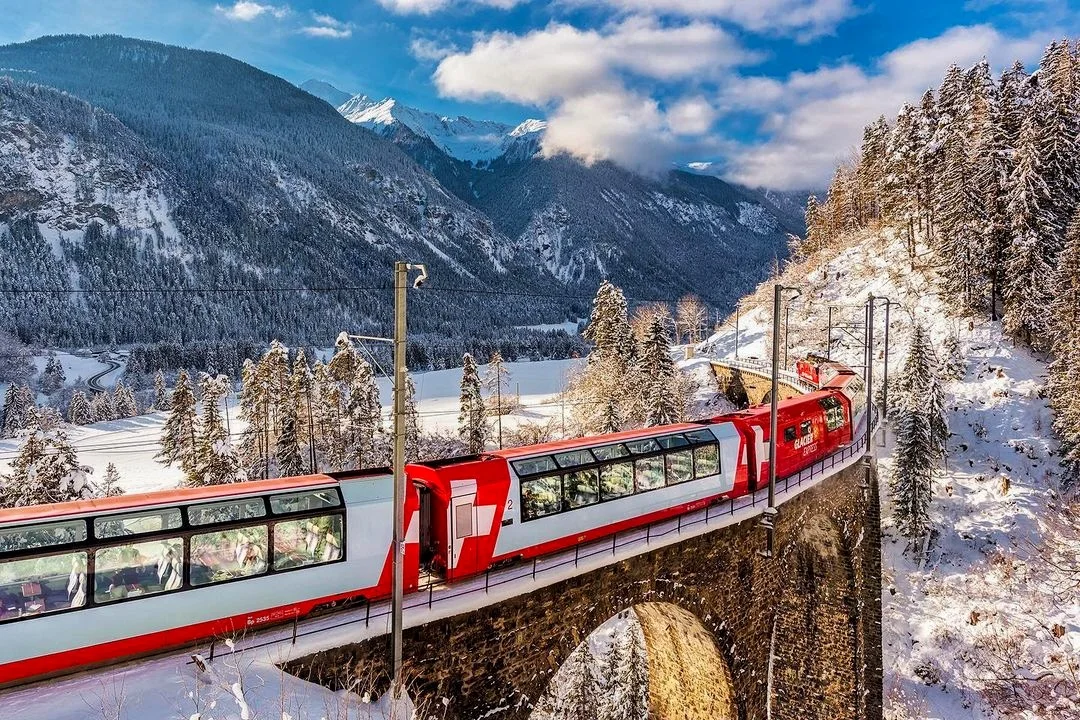
Train Rides
What I really like to do in January is take the train up in the Alps, where you’ll be taken through a winter wonderland.
The Glacier Express is probably the most famous train line in Switzerland, but there are also some cheap alternatives, such as the Matterhorn Gotthard Bahn, which connects Zermatt to Disentis and from Andermatt to Goschenen.
I really like that train ride; it’s usually not that busy.
Indulge In Swiss Winter Cuisine
After exploring Switzerland’s winter wonderlands, warm up with some hearty Swiss cuisine.
January is the perfect time to enjoy Swiss fondue or raclette, especially in alpine restaurants with cozy atmospheres.
Also, don’t miss a cup of Swiss hot chocolate, which pairs perfectly with the snowy surroundings.
What To Wear In January?
Start with thermal underwear or moisture-wicking base layers. I always opt for merino wool.
It keeps me warm without making me overheat while skiing or hiking. A fleece jacket or a lightweight down sweater works wonders as a middle layer.
I pack one that’s easy to remove when indoors because Swiss trains and cafes can get toasty.
A high-quality winter coat is non-negotiable. My insulated parka with a hood has been a lifesaver against mountain winds.
For pants, I wear leggings under jeans. Also, my leather hiking boots with wool socks kept my feet dry and cozy.
I always carry a lightweight backpack with a reusable water bottle, sunscreen (yes, even in winter!), and a spare pair of gloves.
Is Switzerland Expensive In January?
As I mentioned in several blogs, Switzerland has a reputation for being one of the most expensive countries in the world.
However, understanding where your money goes and planning wisely can make the experience worthwhile and even manageable.
Accommodation Costs
January is peak ski season, which means hotel prices in popular ski towns like Zermatt, St. Moritz, and Verbier are at their highest.
During my stay in Grindelwald, I noticed that even mid-range hotels were pricey compared to other European destinations.
For city visits like Zurich or Geneva, I found that prices were more reasonable, especially if booked early.
If you’re a solo traveler, you can consider staying in hostels instead of hotels.
Food And Dining
Dining out in Switzerland isn’t cheap, but it’s a culinary experience I wouldn’t skip.
A fondue dinner in Lucerne cost me about 30 CHF and even casual meals like a rosti plate were around 20 CHF.
To save money, I often grabbed snacks from grocery stores like Coop or Migros, which offer fresh, high-quality options at a fraction of restaurant prices.
Transportation Costs
Getting around in Switzerland is an experience in itself, thanks to the efficient and scenic Swiss Travel System.
The Swiss Travel Pass or the Half Fair Pass will be a lifesaver for exploring the country with ease.
The Travel Pass provided unlimited travel on trains, buses, and even some cable cars.
The Half Fair Pass lets you travel at half price on most trains, buses, and boats, as well as many mountain cable cars and funiculars.
Skiing And Activities
If you’re planning to the slopes, prepare for the high costs. Lift passes for major ski resorts can range from 50 CHF to 100 CHF per day.
Renting gear and taking ski lessons add to the expense, but skiing in the Alps is truly unforgettable.

Snow
Does it snow in Switzerland in January? Yes, January is usually quite a snowy month. You have a high chance of experiencing snowfall, especially up in the Alps.
Because of that, you’ll have great conditions on the ski slopes, and you can enjoy the toboggan run. Even down in the plains, there is a chance for snowfall, usually around two to three times at most.
But the snow here will only last for one or two days. This has been a little bit different in the past. There used to be more snowfall, and it would usually last around three days, but nowadays it’s quite rare.
If you want to go up to the Swiss Alps in January, then I suggest you go to one of the summits to enjoy a breathtaking panorama of the entire Alps covered in snow.
I find it really magical to see such a beautiful winter wonderland.
I have to tell you something very important; if there is a lot of snow in the Alps and it’s sunny, you’ll want to bring sunglasses because it is very bright and can cause eye damage.
Also, put some sunblock on your face because even in winter, the risk of getting a sunburn is quite high𑁋I know it sounds a bit strange.

Ski Resorts
The ski resorts are really great to visit in January. There will be fewer people, and you’ll have great conditions on the slopes, as I mentioned.
There are many ski resorts all around the country, such as Belalp, Grimentz, Zermatt, Saas-Fee, Aletsch Arena, Samnaun, and many more.
During the week, there will be only a few people on the slopes, but on the weekends, it’s going to be different.
Everybody has time off, and all the Swiss are traveling to the Alps. So on weekends, the ski resorts can be very busy.
I recommend going on weekdays to avoid crowds and enjoy the best time.
For retired people, I would say January is the best month in winter because you can enjoy the ski slopes with fewer people, which is certainly important because the risk of collisions is quite low.
Also, because there are not so many people on the slope in January, it will be cheaper to purchase tickets. The same goes for reserving hotels.
The hotels are not fully booked, so you may benefit from lower prices and it’s also easier to book at the last minute.
However, you have to be a bit aware that not every hotel can be booked last minute, especially the smaller and more luxurious ones.
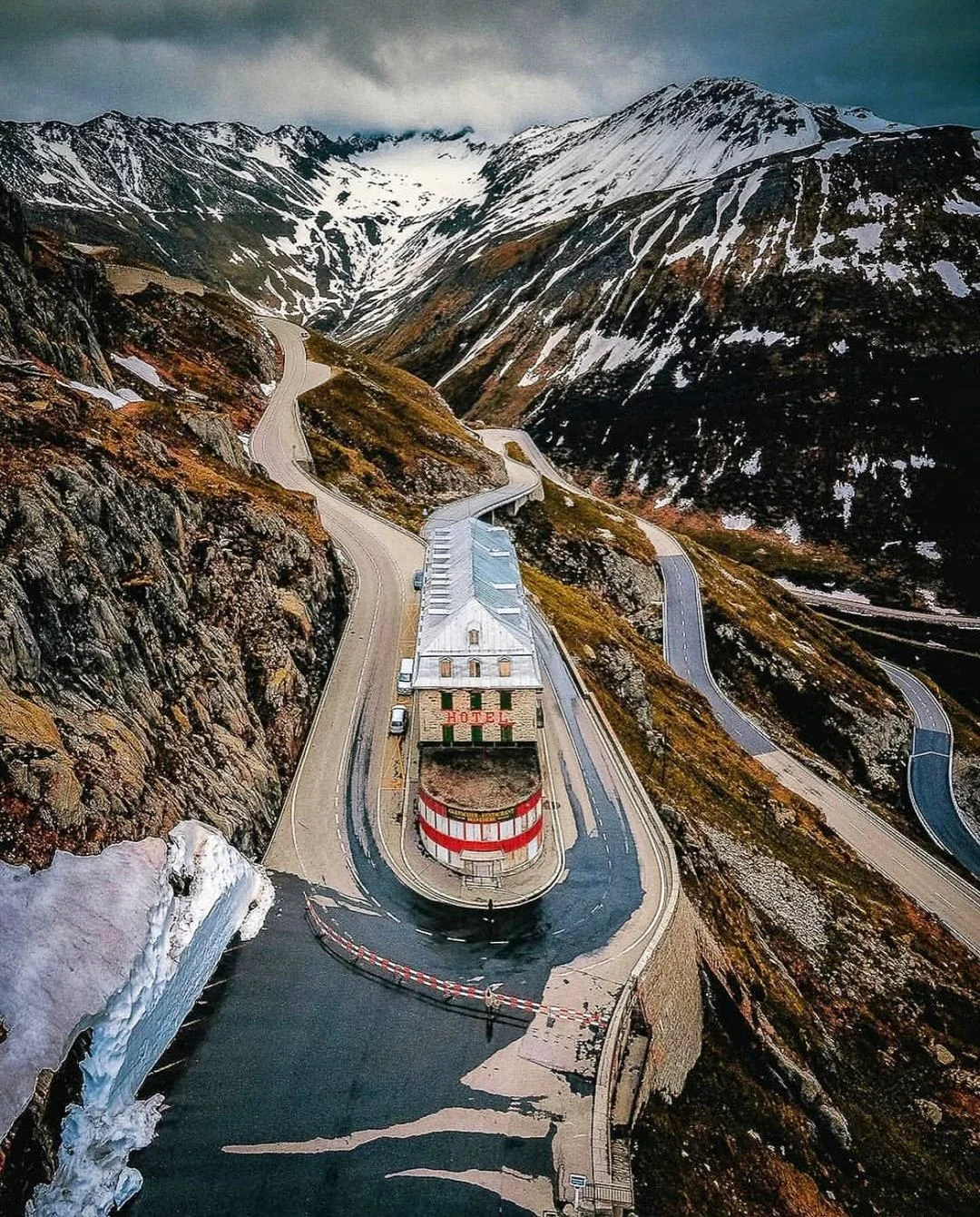
Pass Roads
The pass roads are mostly closed. I know it’s really great to drive on the roads and enjoy the Swiss Alps, but it’s not possible in January.
There are a few pass roads open, for example, the Brunig Pass, which is open year-round and connects Lucerne to Interlaken.
Also, the Julier Pass is open all year and connects the Engadin Valley with central Graubunden.
If you want to experience a pass road with a lot of snow, then the Julier Pass is definitely perfect for you.
Also, if you want to take a shortcut, there are car train tunnels that you can use, such as the Autoverlad Furka, which connects Uri to Valais, the Autoverlad Vereina from Prattigau Valley to lower Engadin Valley or the Autoverlad Lotschberg from Kandersteg to Valais.
These tunnels are really great. You just drive your car onto the train, then sit back and enjoy the ride and relax.
I find this really cool, but you have to know that during weekends it can be very crowded, especially on Sundays when everybody is returning from skiing.
Sometimes the waiting times can be 1 hour to 3 ½ hours. So, I recommend you leave early or very late.
But if you leave very late, you also have to be aware that the tunnels close at 11:30 pm.

Olivia
I’m a passionate travel writer and food enthusiast with a deep love for Switzerland. With years of experience exploring the country’s breathtaking landscapes, top hotels, and finest restaurants, I share insider tips, must-visit destinations, and authentic Swiss experiences on Swiss Sage.

